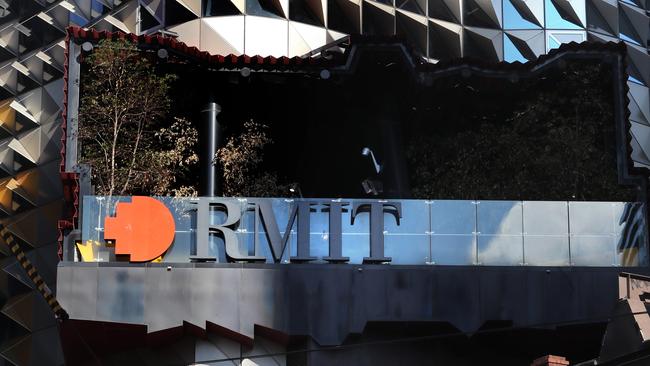Tension rises as RMIT enterprise agreement is delayed
Tension is rising between the union and management at RMIT as delays mount on a new enterprise agreement .

Tensions between the National Tertiary Education Union and RMIT have intensified after the union claimed the university threatened it with legal action following the branch’s decision to encourage staff not to undertake unpaid labour for 11 days in August.
The rift between the union and university stems from multiple factors, including an expired enterprise agreement and excessive workload due to the Covid-19 aftermath.
“The enterprise agreement expired in 2021 and staff wanted to negotiate a new one, but we were told by the vice-chancellor that he would not commence bargaining until next year,” NTEU RMIT branch president Tricia McLaughlin said.
“Which leaves staff with an outdated agreement that is no longer relevant for modern tertiary sectors.”
According to the NTEU, RMIT should come to the bargaining table and negotiate current wages which have not kept up with inflation, and better working conditions for staff as workload has increased due to mass redundancies and hybrid teaching.
“The 2 per cent administrative pay increase that was given last June instead of an enterprise bargaining has meant that staff wages have effectively gone backwards.
“There has also been more of an emphasis on teaching and less of an emphasis on academic research, which has resulted in staff also having to undertake additional classes.
“All of this workload has resulted in much staff stress, and we can’t wait for 2023 to bargain,” Dr McLaughlin said.
In order to demonstrate the extent of the excessive workload at RMIT, the union voted to have 11 days in August where academics would not undertake any additional work and finish their tasks without exceeding the number of hours they are required to work for a week.
These 11 days of ‘non-extra workload’ also included two days of open days at three of RMIT’s city campuses.
As a result of that motion, the union said it received a letter from the university’s external solicitors stating that the action was considered unprotected, and that the university would pursue legal action against the union if it went ahead.
The NTEU was asked to send an email to all members to cancel the action, which the branch did.
“I think there is a genuine disbelief at the over-reaction, we’re talking about excessive workloads and they’re talking about threatening legal action,” Dr McLaughlin said.
“Given the level of threat and the over-reaction by the university’s external solicitors, the branch committee took a decision that we would not pursue.”
RMIT was approached for comment and received a statement declaring that the suggestion it refused to come to the bargaining table and threatened legal action against staff is completely baseless.
“We are currently in the final stages of developing our new strategy for the next decade. While this work is underway, a policy pay rise was announced in May and staff were updated on the need to finalise the strategy first before bargaining could commence. We are keeping our people regularly updated as we complete this work,” the statement said.
“RMIT employees who participate at our Open Days are remunerated. They receive pay or time in lieu for their support, depending on their employment arrangement.”



To join the conversation, please log in. Don't have an account? Register
Join the conversation, you are commenting as Logout